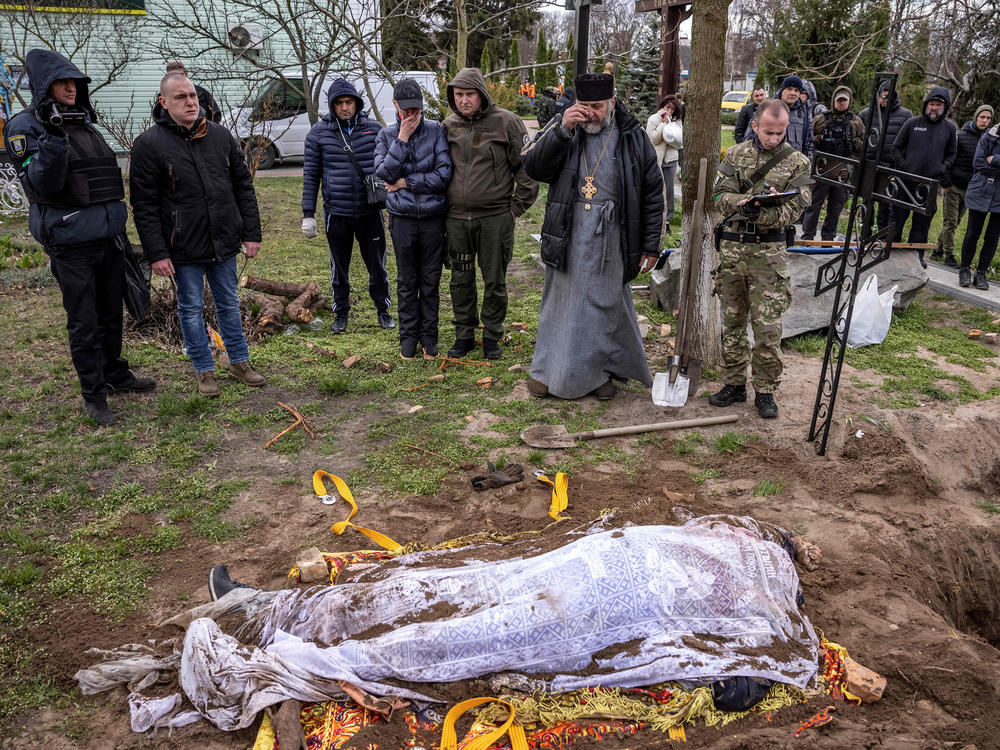Section Branding
Header Content
Russia-Ukraine war: What happened today (April 12)
Primary Content
As Tuesday draws to a close in Kyiv and in Moscow, here are the key developments of the day:
More than 1,800 civilians have been killed in Ukraine since Russia's invasion began on Feb. 24, according to the Office of the U.N High Commissioner for Human Rights. The group has also documented nearly 2,500 injured civilians, though it says actual figures for civilian casualties are likely to be "considerably higher."
A Russian convoy continues moving south toward the town of Izium in eastern Ukraine, which has already been surrounded by heavy fighting, according to the Pentagon. The convoy is believed to be part of Russia's efforts to reposition troops in advance of a major offensive in eastern Ukraine in the coming days. This follows the retreat of Russian troops from Kyiv and other northern cities, leaving tens of thousands of mines in their wake, according to Ukrainian President Volodymyr Zelenskyy.
Ukrainian authorities arrested fugitive oligarch and pro-Russian opposition politician Viktor Medvedchuk. Zelenskyy shared a photo of handcuffed Medvedchuk, who'd been under house arrest facing accusations of treason but escaped in February.
Russian President Vladimir Putin delivered his first extended remarks about Ukraine since Russian forces withdrew from northern Ukraine. He blamed Kyiv for derailing peace talks and said Russia would meet its "noble" and "necessary" objectives of protecting Russian speakers in eastern Ukraine as well Russians at home from a hostile West. Earlier, Austrian Chancellor Karl Nehammer offered a pessimistic report from his meeting with Putin, saying he struggled to get the Russian leader to agree to guarantee humanitarian corridors, let alone a cease-fire.
Western officials are calling for Russian authorities to release the detained opposition activist Vladimir Kara-Murza. The activist, who's been critical of the invasion of Ukraine, was arrested near his Moscow home and sentenced to 15 days in jail on the charge of disobeying a police order. Kara-Murza in 2015 and 2017 fell ill in incidents of suspected poisoning. He'd been close friends with murdered anti-Kremlin politician Boris Nemtsov.
In-depth
Meet the rescue team extracting people trapped in Kyiv suburbs under siege.
The U.S. and India — democracies and friends — agree to disagree on the Ukraine war.
Romania hasn't always seen itself as a safe haven. War in Ukraine has changed that.
Holocaust museums in Canada, U.S., U.K. and South Africa have condemned Russia's actions in Ukraine.
These intricately decorated eggs are raising money and good wishes for Ukraine.
Earlier developments
You can read more news from Tuesday here, and daily recaps here. For context and more in-depth stories, you can find NPR's full coverage here. Also, listen and subscribe to NPR's State of Ukraine podcast for updates throughout the day.
Copyright 2022 NPR. To see more, visit https://www.npr.org.

